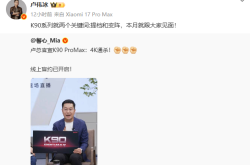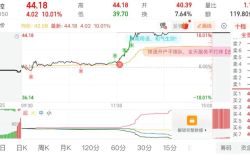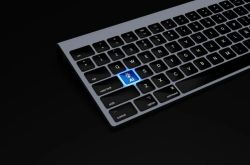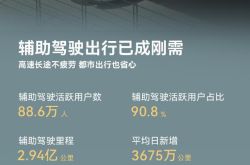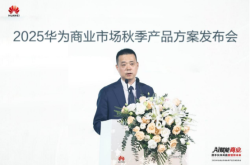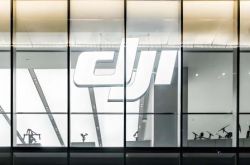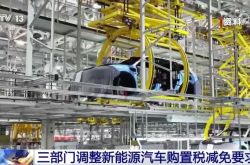NIO Battery Swap, Not as Glorious as It Seems
![]() 06/12 2024
06/12 2024
![]() 613
613
With the gradual increase in the power of the battery swap alliance, the impact on NIO's original battery swap system will also grow larger. The question comes back to the original point: is NIO truly a high-end new energy vehicle manufacturer or a battery swap service provider?
Main Content
In the past two months, NIO has frequently been in the headlines. In addition to the release of the LeDao vehicle, NIO Energy also received 1.5 billion yuan in investment at the end of May, which will be primarily used for the charging and battery swap segment. This is also the first time that NIO's battery swap business has received external capital support.
The investor in this round of NIO's battery swap business is Wuhan Guangchuang Fund. This is a market-oriented fund established by Wuhan Optics Valley Industrial Investment Co., Ltd., with the backing of the Wuhan East Lake New Area Management Committee. This indicates that NIO Energy's battery swap business has gradually gained recognition from local governments.
Looking back, the industry has never been optimistic about NIO's main battery swap business. Nowadays, not only has the battery swap model gained official recognition, but at least seven car manufacturers such as GAC Group, Geely Group, Geely Holding, Chery Automobile, and FAW have joined NIO's battery swap alliance.
As the market recognition of the battery swap model continues to increase, does it mean that NIO's battery swap business has ushered in an opportunity for sustainable development? What is the attitude of the capital market towards the battery swap model? In addition, NIO has signed battery swap cooperation agreements with multiple car manufacturers. What is the current progress?
Embarking on a Fast Development Track
As we all know, the battery swap business has not been favored by the market, and there have been failed cases and negative voices from car company executives within the industry. Initially, Tesla announced the abandonment of its battery swap business in 2021 due to factors such as high construction costs, low profits, and long return periods for battery swap stations. Additionally, Wang Chuanfu of BYD also stated that battery swapping in the passenger vehicle sector is neither mainstream nor necessary, as the battery swap model faces issues such as standardization in vehicle design, increased volume, and structural safety.
There are not many car manufacturers deploying battery swap stations in the market, and more efforts are being made in the direction of ultra-fast charging. Only NIO has continuously invested in building battery swap stations, becoming the first car manufacturer to promote the large-scale popularization of the battery swap model. Since the operation of NIO's first battery swap station in May 2018, NIO has continuously worked in the field of battery swapping and iteratively upgraded its battery swap system. Apart from some operational passenger vehicles in China, NIO can be considered the only player in the private consumer market for battery swapping.
However, due to the investment in the energy replenishment system, NIO has also faced much skepticism, including being targeted by institutional short-sellers and being criticized by the media. NIO's cumulative losses have exceeded 80 billion yuan in recent years, which is believed by the industry to be closely related to NIO's heavy investment in the battery swap field. According to statistics, the cost of building a battery swap station was around four to five million yuan, which is a significant expense for continuously loss-making new energy vehicle companies.
Until the past two years, the market's attitude towards the battery swap model has undergone a significant shift. Wuhan Optics Valley's 1.5 billion yuan investment in NIO is a testament to this. NIO Energy stated that this round of strategic investment will be used for technological research and development, manufacturing, operation and maintenance in areas such as charging, battery swapping, energy storage, and battery services, as well as for the layout and development of NIO Energy's charging and battery swap infrastructure. This investment in NIO represents a high degree of recognition from local governments for NIO's battery swap model.
Not only has NIO received support from national departments, but it has also attracted the participation of multiple allies. It is reported that NIO's battery swap alliance already has more than ten members, including domestic leading car manufacturers such as FAW, Geely, Changan, Chery, and Lotus, as well as state-owned energy companies such as China Southern Power Grid and Wan Neng Group.
At the same time

